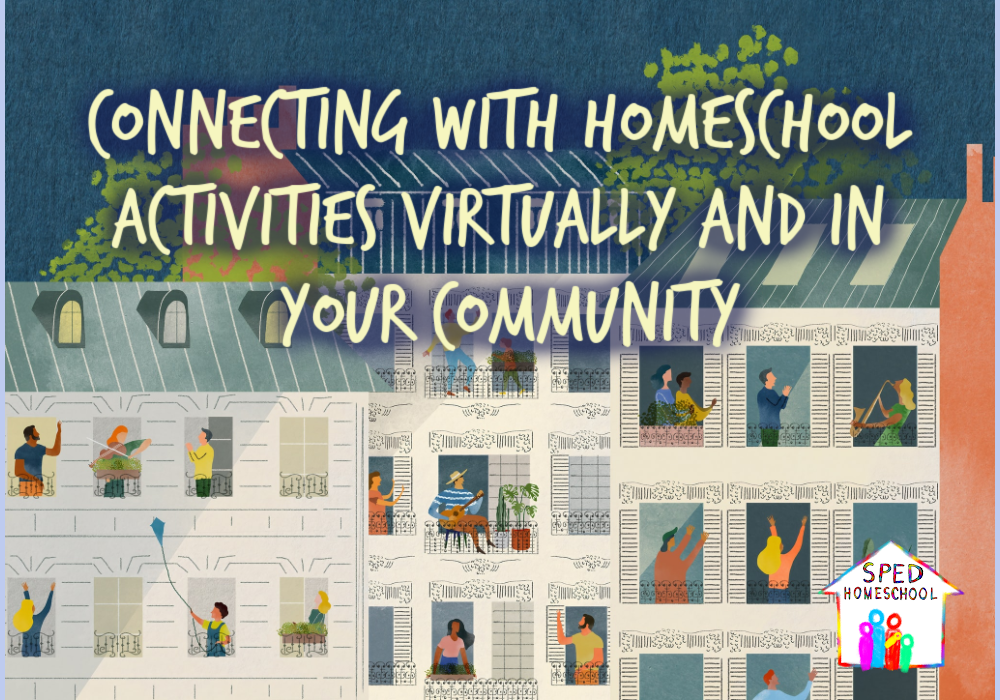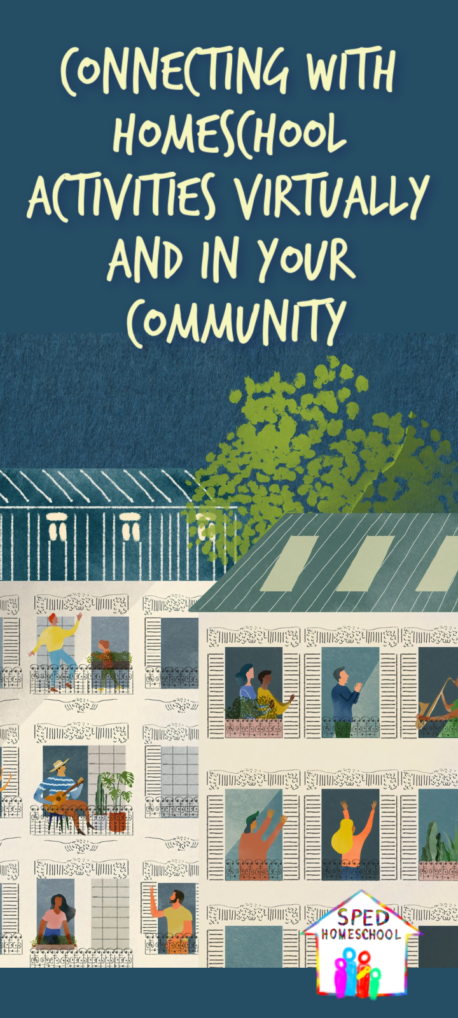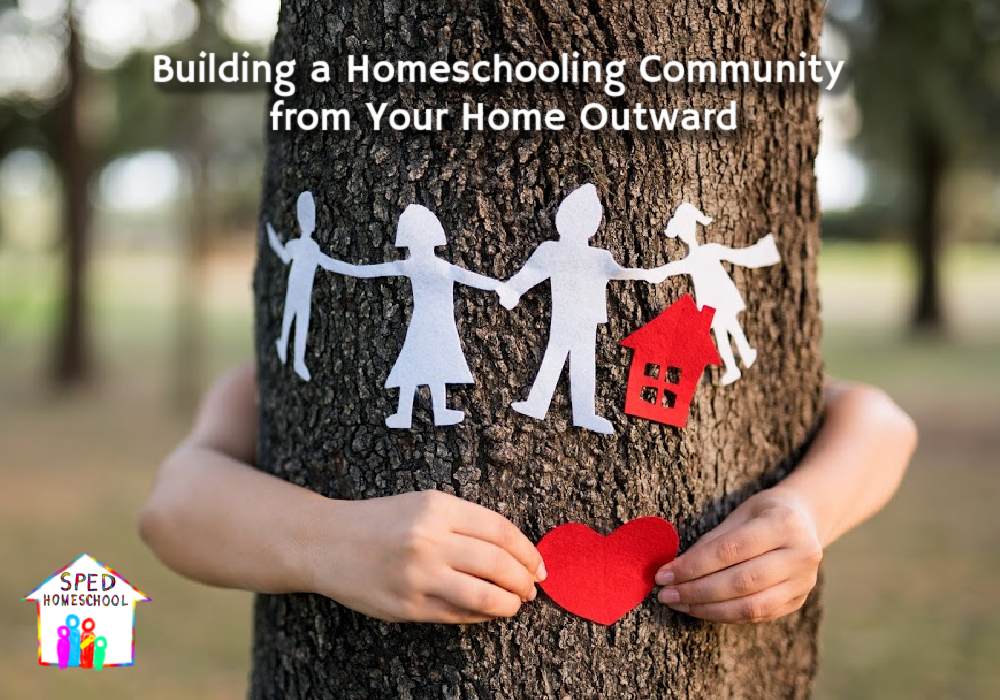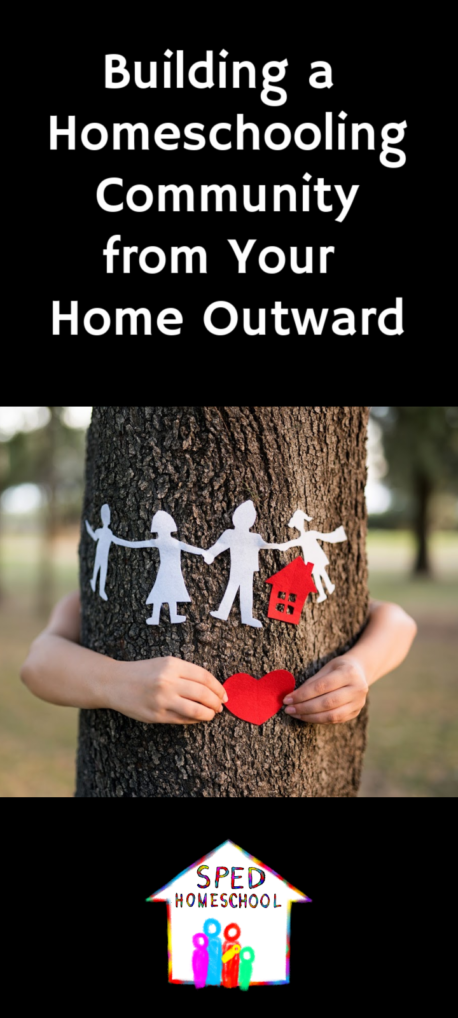
By Leanna Ampola – SPED Homeschool Partner, HomeschoolAnywhere
One of the best things about homeschooling is that your children can learn by being a part of the broader community. Homeschoolers everywhere can supplement their at-home learning by attending local homeschool events and taking online classes.
Advice for New Homeschool Families
Our greatest homeschooling asset is each other. If you recently began homeschooling, you will want to connect to in-person groups and online resources.
Online: If you use Facebook, find local groups of homeschoolers that align with your values. Larger cities will often have groups for specific areas of the city. I recommend joining local and state-wide groups so you get a variety of perspectives. There are also nationwide groups for specific topics, such as homeschooling a child with ADHD.
In-Person: Children thrive in the company of others. And parents do too. Some of my best adult friends have come from the homeschool community. Find local social groups that meetup for in-person activities or classes. If you have difficulty, post on your local Facebook group and tell them what you are looking for. And if you don’t find what you want, start a group of your own!
Finding Activities
There are so many amazing events and classes! Keeping track of them can be daunting, even for seasoned homeschoolers. Some Facebook groups keep lists of local activities and resources. You can also look on HomeschoolAnywhere.com which is an online calendar of homeschool activities.
In-Person Learning and Connection
Below are just some ideas for in-person connection. Check beforehand to ensure you are comfortable with their in-person Covid-19 precautions so you can stay safe while having fun.
Homeschool social groups: Your local homeschool social groups are a great way to find new friends, both for you and your children. Many host classes and sponsor field trips.
Homeschool days and classes: Many museums, zoos, and nature centers host monthly homeschool days. Organizations such as science centers, churches, gymnastics / dance centers, and others sometimes hold daytime homeschool classes. Your local Facebook groups may list these, or you can find them on each organization’s website.
Factory tours: Our homeschool group toured a family-run cheese factory and an Arden’s Garden juice factory. We also had a (tasty) educational session about making chocolate at a chocolatier. Reach out to small or large businesses that produce products. Unless they have legal restrictions, they are often happy to arrange a tour.
Farm tours: Learn about biology, botany, and animal husbandry at your local farm. See what’s in season and go picking. Group tours are also an option. Take what you learn on the farm and do some gardening at home.
Local history: Communities are rich with history. You can also search the National Register of Historic Places to find historical houses or other places near you. Also, some local cemeteries give out educational information or host tours.
State parks: Many state parks offer much more than hiking. Many have museums and offer regular educational programs. Get on their email lists to keep up with their events.
Hybrid learning centers: Some organizations offer hybrid homeschool programs, where children learn with others for part of the week. Ask your local homeschool group what options exist in your community.
Volunteer: It’s wonderful to volunteer as a group. I organized groups of homeschool children to do monthly crafts at a local nursing home, pack food at a food bank, and do yard work at a wildlife nature center (where we got to learn about the animals afterwards). Each organization has its own rules, but many welcome volunteers.
Specialty centers: Many communities have businesses that specialize in activities like cooking, sewing, yoga, skating, archery, and even comedy. Their facilities are mostly empty during the day, and they are often excited to host a class if homeschoolers ask for one. Children can also connect virtually to attend classes from afar.
Virtual Classes and Community
In 2020, virtual classes have replaced many that are normally held in person. For example, most museum “homeschool days” are currently virtual. Though not ideal, they still provide an enriching live connection. These are just a few of the many places you can find virtual activities.
- HomeschoolAnywhere.com hosts a calendar of virtual homeschool activities that can be sorted by age, cost, topic, religion, etc.
- Outschool lists online classes for children of all ages.
- The Smithsonian Institute hosts several events daily from their various museums.
- Go somewhere new from the comfort of your couch! Girl Travel Tours offers live virtual tours of places like Egypt, New Zealand, Pompeii, and the Great Wall of China. (For everyone, not just girls.) They are free with tips appreciated. Past sessions are archived and can be watched anytime.
- Last year we got hooked on watching a livestream of bears fishing for salmon at Brooks Falls, Alaska. From nesting spoonbills to a kitten sanctuary to a watering hole in Africa, this site streams 24/7 from around the world.
- There are many online opportunities for special learners, such as Incuentro, which offers live virtual classes to help children learn social skills.
- You can tour museums around the world… from the Sistine Chapel to the National Museum of China. These self-guided tours are an excellent way to supplement your art, history, and science curriculums. This site lists 75 of the best virtual museum tours in the world.
There is a vast variety of online classes, especially during COVID-19… you can find everything from chess to cooking to acting. Some organizations cater specifically to homeschoolers, whether secular or religious. Several are listed here .
When choosing activities, let your children’s interests lead the way. And whichever experiences you choose, have fun and “pay it forward” by sharing what you know with other homeschoolers. Best wishes for all your homeschool adventures!



